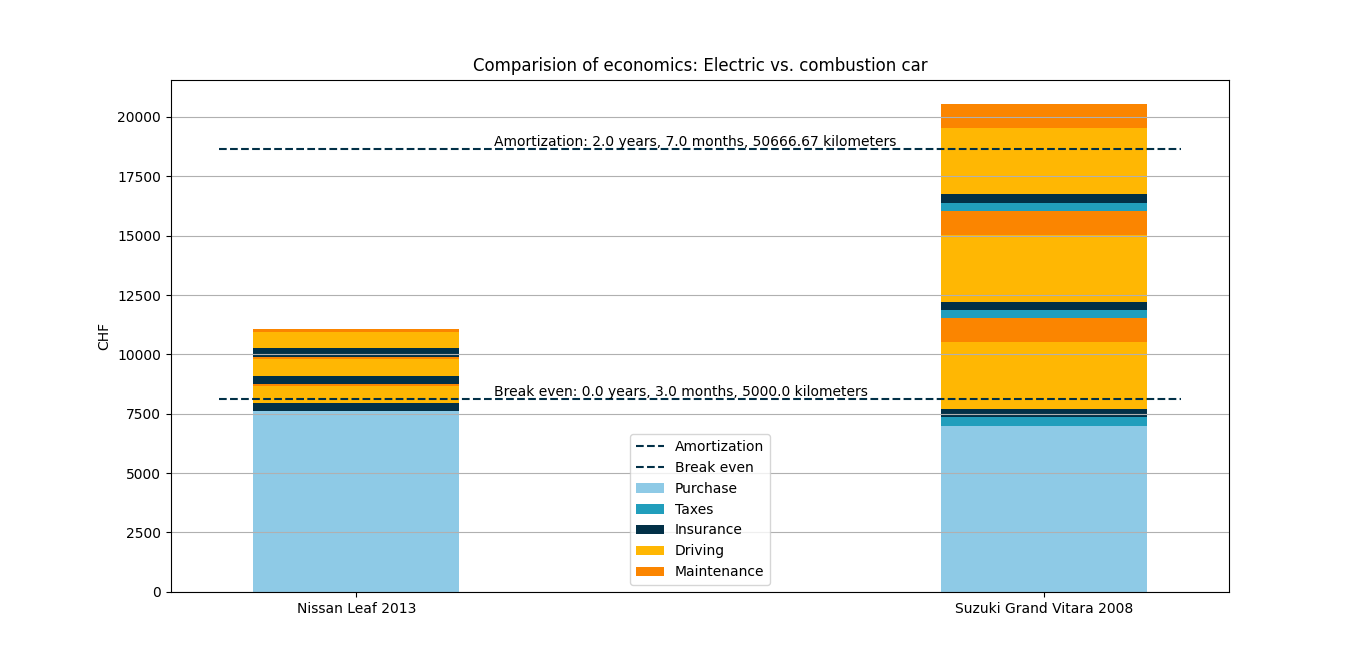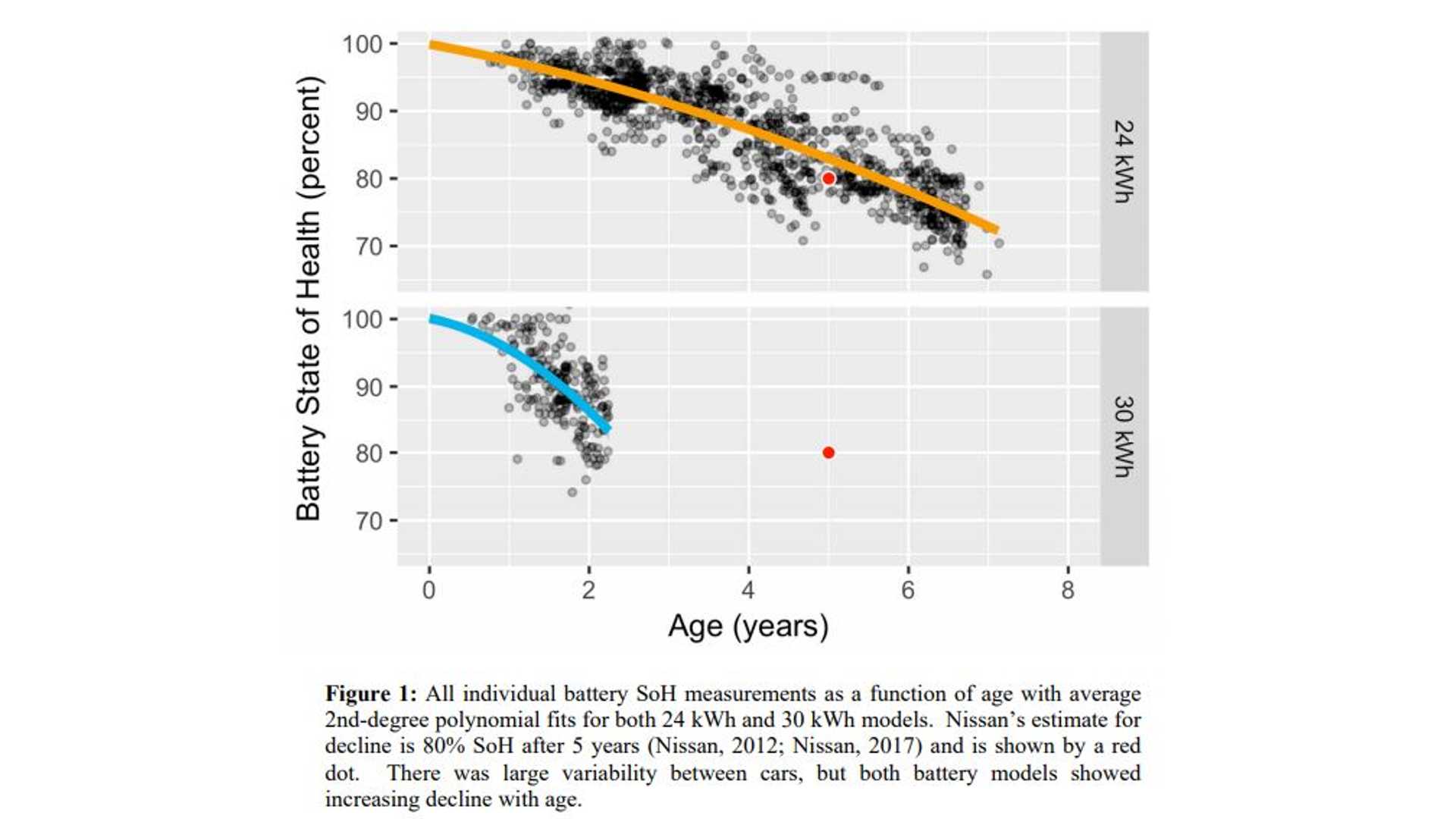To be honest, I borrowed a bigger junk of the headline from Jenny List, an active Hackaday author. A recent article of hers[1] inspired me to write something about the whole environmental sustainability is not affordable opinion, that she started off to plead for with cars in her article.
People who know me would describe me as a rather conservative consumer always being very careful and frugal about all sorts of investments. Just like almost every tech guy / girl, I have also been interested in Electric Vehicles (EVs) for a long time. When I was an undegraduate in 2013, as students, we had the possibility offered by the Deutsche Bahn to rent a Renault Zoe ZE for 1 € per 15 minutes. I think this programme of the DB is called Flinkster nowadays. The campus was located on the outskirts of the city, but we had one of those car sharing places on it. Four people driving to the city during lunchbreak for an hour to eat a pizza was an offer coming at an attractive price. Ever since, I wanted to own a car with an electric drivetrain. The technology is simply superior due to many aspects, but the economical one, right?
In many cases, driving an EV is quite certainly "a lifestyle choice enabling the well heeled to pat themselves on the back for their chequebook environmentalism" as Ms. List writes in her article. I sure do agree on that one. However, her message about electric cars is wrong from my point of view. It is irrational, as far as I can see, not really fact-based, which is not how a technologist should approach a topic. She writes "I can just about find one that’s maybe a decade old, but when its range is less than I can easily cycle without getting tired it becomes little more than a very expensive automotive project in terms of its use to me". It would hardly be an exaggeration to say, that cycling a daily commute of 50 km is too much for the average Jill or Joe. A Nissan Leaf with only about 50 % State of Health (SoH) left can easily achieve this task in winter. And this is really only happening after many kilometers of driving, mine has arround 83 % SoH left w/ 8 years on its back. Personally, I do believe Ms. List neither has an integral view on the expenses of a car during the time it is owned by someone in general nor did she look very well into the second-hand market in Great Britain, which is known to be the second biggest sales market for Nissan Leafs in Europe[2].
I was wondering about this questions whether an EV is really a way to safe money or not and I came to the conclusion: it depends! If you buy a brand new Polestar 2 when you would rather buy a second-hand, few years old BMW X1 w/ a diesel engine, sure the Scandinavian glamour boy will cost you maybe 70 % less per kilometer, but you will have a long time to catch up with the initial extra costs. On the contrary, if you for instance get a second car w/ an electric drivetrain for you and your family and try to avoid kilometers w/ your combustion car, you may find, that your investment will be amortized in a short time. However, it is important to throw in the determining factors.

I worked on a calculation model and casted it into a small script, that I would like to introduce here. The result for my personal situation is, that by avoiding to put kilometers on my diesel off-road vehicle by using my Leaf instead, I will have its purchase price completely amortized after ca. 2 1/2 years or ca. 50 000 km, which sounds fine to me.
As always in life, this "financial strategy" comes at a certain risk. If the battery degrades by a too high percentage during this 50 000 km, the amortization would be postponed, because I could not take the car for longer rides. But empirical evidence[3] is showing, that the degradation happens at an almost constant rate. Most likely in my climate (central Europe) the 24 kWh 2013 model Leaf battery is subject to calendaric aging only if it is charged / discharged avoiding excessive heat.

Source[4]: Myall, D.; Ivanov, D.; Larason, W.; Nixon, M.; Moller, H. Accelerated Reported Battery Capacity Loss in 30 kWh Variants of the Nissan Leaf. Preprints 2018, 2018030122 (doi: 10.20944/preprints201803.0122.v1).
17 % degradation in 8 years is being equal to approx. 2 1/8 % a year. Extrapolating this number linearly, I will end up with less than 5 1/2 % degradation when the car is amortized. This is a simplification, because the authors of the paper found out, that there is a slight increase of the aging rate of the 24 kWh battery.
Perhaps, this estimation approach is completely wrong, since the battery starts degarding much faster when its approaching its end of life. I could not find much reliable data on the internet about batteries as old as mine. But even assuming a worst-case of another 17 % degaradation, would leave me with 66 % SoH. This would mean that I could still drive for about 80 km until the battery is empty. I commute less than that and the Swiss🇨🇭 average definitely commutes less than that as well, with ca. 15 km a day (one-way)[5].
To warp up, I am convinced, that we reached the point in time where you can strike marvelous deals on the second-hand EV market. Depending on your personal circumstances, e.g.
- Can you charge for free at a lot of places (employer, supermarket etc.)?
- Are there tax or insurance bonuses in your state or area?
- Are the gas prices high and the electricity prices low?
- Can you divert excessive energy from your homestead solar system into the car's battery?
chances are higher or lower, that an EV is the more economic choice. Electromobility is definitely not only a rich man's game anymore, but we mortals can play it as well.
For my script[6] communicating your personal situation to the computer happens by creating a JSON file. It is easiest to copy the one in the repository and adapt the values of the objects. I think they should be pretty self-explanatory. Here is the example:
{
"currency": "CHF",
"kwh_price_home": 0.2,
"kwh_price_commercial": 0.5,
"juice_litre_price": 1.75,
"kilometers_per_year": 20000.0,
"ecar": {
"label": "Nissan Leaf 2013",
"price": 7600,
"taxes": 0,
"insurance": 354,
"kwh_per_kilometer": 0.16,
"maintenance": 100,
"charging_behaviour": {
"percent_free_charges": 90,
"percent_home_charges": 5,
"percent_commercial_charges": 5
}
},
"ccar": {
"label": "Suzuki Grand Vitara 2008",
"price": 7000,
"taxes": 350,
"insurance": 362,
"litres_per_kilometer": 0.08,
"maintenance": 1000
}
}

